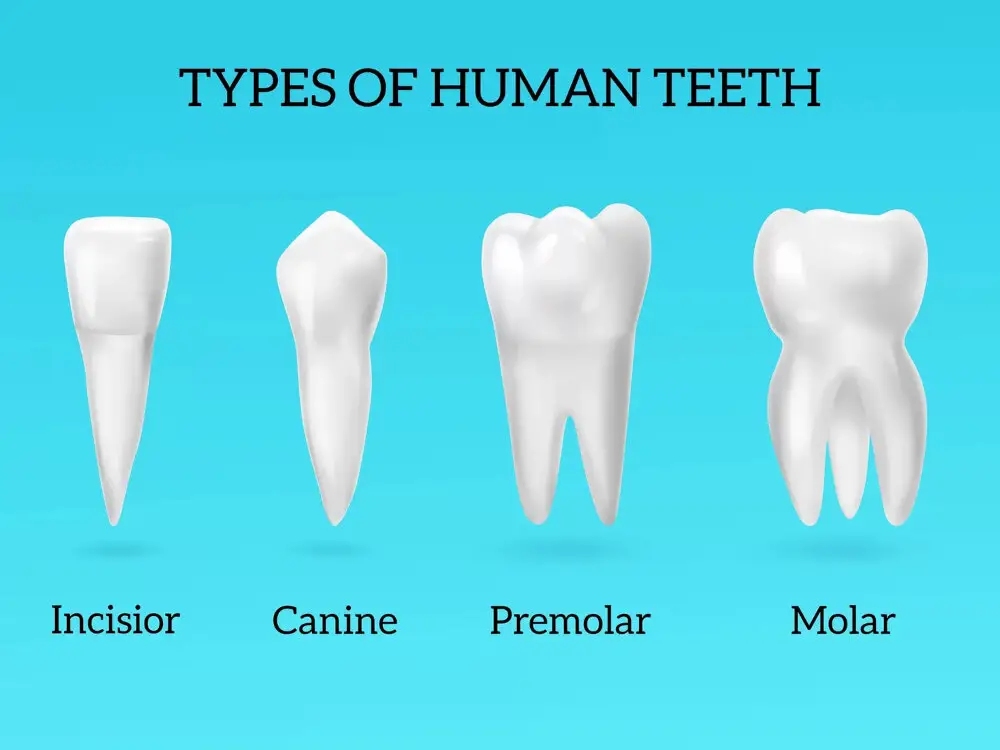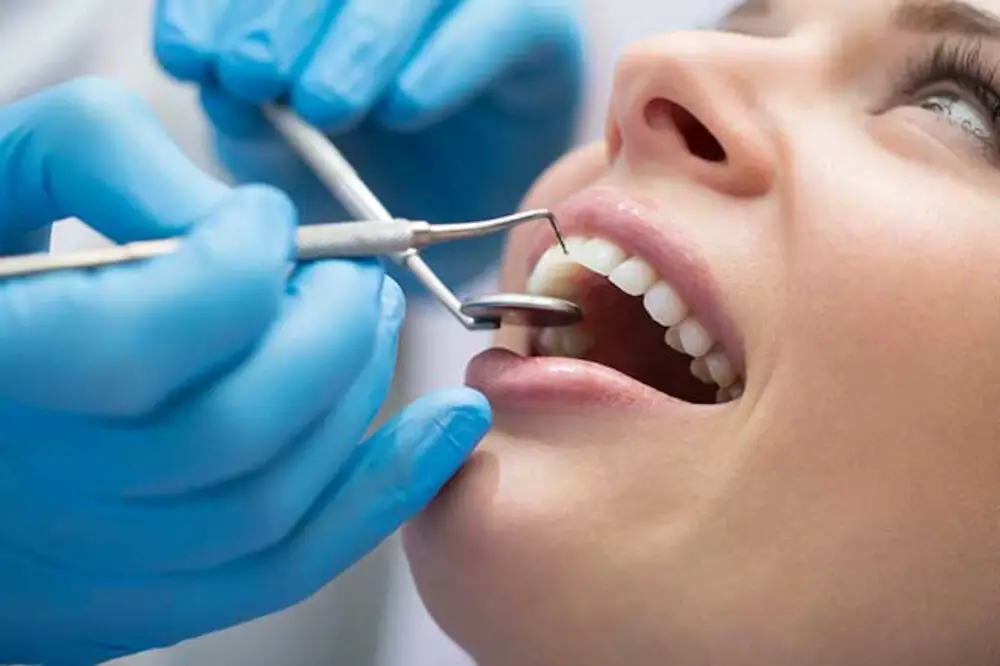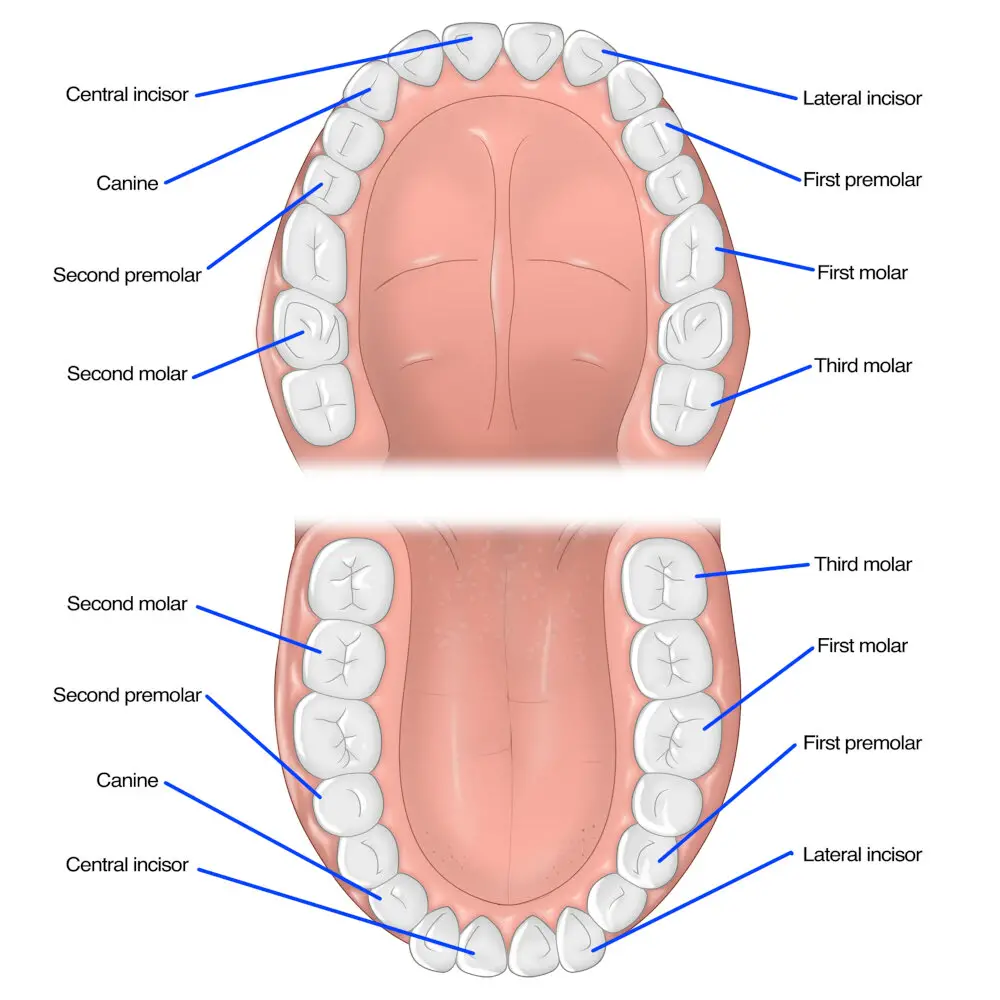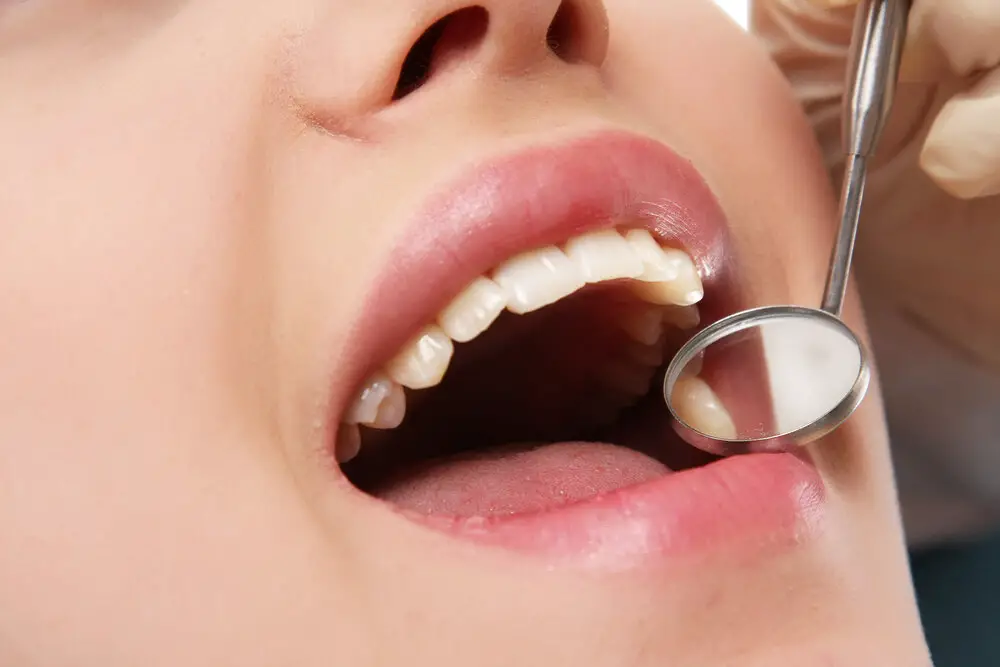Experiencing Wisdom Teeth Eruption: A Guide to the Sensations and Pain

Experiencing wisdom teeth eruption can be both an exciting and daunting process. It marks a significant milestone in a person’s life, signaling the transition from adolescence to adulthood. However, it can also be a painful and uncomfortable experience, leaving many individuals feeling anxious and unsure of what to expect. Understanding the sensations and pain associated with wisdom teeth eruption can help alleviate some of the fear and uncertainty surrounding this process. The eruption of wisdom teeth can be a unique experience for each individual. While some may experience little to no pain or discomfort, others may feel intense pressure and soreness in their mouth and jaw. The sensation of teeth pushing through the gums can also be a strange and uncomfortable feeling. It is essential to listen to your body and communicate any concerns or discomfort with your dentist or healthcare provider. With proper care and attention, the eruption of wisdom teeth can be a manageable and even transformative experience.
Wisdom teeth, also known as third molars, are the last set of molars that develop at the back of the mouth. These teeth typically emerge between the ages of 17 and 25, although some people may experience them earlier or later. Wisdom teeth can cause discomfort and pain during their eruption due to their large size and the limited space available in the mouth. In some cases, they may even cause damage to adjacent teeth or become impacted, which may require removal by a dental professional. While wisdom teeth can be a source of discomfort and pain, they are a natural part of the dental development process and can be managed with proper care and attention.
Understanding wisdom teeth eruption is crucial for anyone who wants to avoid the discomfort and pain that often accompanies it. Wisdom teeth are the last set of molars to emerge, usually between the ages of 17 and 25. While some people may not experience any issues with their wisdom teeth, others may face a variety of problems such as infection, swelling, and pain. Understanding the symptoms, causes, and treatment options for wisdom teeth eruption can help individuals make informed decisions about their dental health. Additionally, knowing when to seek professional help can prevent complications and ensure prompt treatment for any issues that arise. Therefore, gaining knowledge about wisdom teeth eruption is an important step towards maintaining good oral health and overall well-being.
When do wisdom teeth erupt?

Wisdom teeth, also known as third molars, typically erupt between the ages of 17 and 25. However, the exact timing can vary from person to person, as some individuals may experience eruption earlier or later than this range. In some cases, wisdom teeth may not erupt at all, which is known as impaction. When wisdom teeth do erupt, they usually appear in the back of the mouth, behind the second molars. Due to their location and the fact that they are the last teeth to erupt, they can often cause discomfort and pain. The eruption of wisdom teeth can cause a range of sensations and pain. As the teeth begin to emerge, individuals may experience soreness and swelling in the gums. This discomfort can be exacerbated by the pressure of the teeth pushing against the surrounding teeth. In some cases, the teeth may only partially erupt, creating a flap of gum tissue that can become irritated and infected. Additionally, wisdom teeth can cause overcrowding and shifting of the other teeth in the mouth, leading to further discomfort and pain. If you are experiencing wisdom teeth eruption, it is important to speak with your dentist to determine the best course of action for managing any pain or discomfort.
Wisdom teeth, also known as third molars, are typically the last teeth to erupt in the mouth, usually appearing between the ages of 17 and 25. However, the age range for wisdom teeth eruption can vary from person to person, with some individuals experiencing eruption as early as age 13 and others not until their late 30s. Additionally, some people may never develop wisdom teeth at all. While the eruption of wisdom teeth can cause discomfort and pain, it is important to monitor their development and consult with a dentist or oral surgeon if any complications arise.
The eruption timing of wisdom teeth can vary significantly from person to person, and even between the left and right sides of the same person’s mouth. Some individuals may experience early eruption, as early as their late teenage years, while others may not see their wisdom teeth until their mid-twenties or later. The timing can also be influenced by genetics, with some families having a history of early or delayed wisdom tooth eruption. Additionally, the process of eruption itself can be erratic, with some teeth emerging in a straight and orderly fashion, while others may come in at odd angles or become impacted, causing discomfort and pain. It is important to be aware of these variations in eruption timing so that you can properly prepare for the potential discomfort and pain associated with wisdom teeth eruption.
What are the sensations of wisdom teeth eruption?

Wisdom teeth are the third molars that erupt from the back of the mouth, usually between the ages of 17 and 25. The sensation of wisdom teeth eruption can vary from person to person, but it is generally accompanied by discomfort and pain. The first sign of wisdom teeth eruption is often a dull ache or pressure in the back of the mouth, which can be accompanied by swelling and redness of the gums. As the teeth continue to move and grow, the pain can become more intense and may radiate to the ears, jaw, and neck. Some people may also experience headaches, difficulty opening their mouth, and a bad taste or odor in their mouth. The sensation of wisdom teeth eruption can be especially uncomfortable if the teeth are impacted, meaning they are unable to fully emerge from the gums. This can cause the teeth to push against neighboring teeth, causing pain and discomfort. In some cases, impacted wisdom teeth can even cause damage to surrounding teeth and gums or lead to infections. It is important to monitor the growth and development of wisdom teeth and to consult with a dentist or oral surgeon if any pain or discomfort is experienced.
The eruption of wisdom teeth can cause a variety of sensations, ranging from mild discomfort to intense pain. Some people may experience swelling and tenderness in the gums, while others may feel a dull ache in the jaw. Additionally, the teeth may feel sore or sensitive to pressure, making it difficult to chew or speak. In some cases, the gums may even bleed slightly as the teeth push through. Overall, the experience of wisdom teeth eruption can be uncomfortable, but with proper care and management, most people are able to manage the pain and discomfort effectively.
When it comes to impacted wisdom teeth, the sensations can vary greatly depending on the severity of the impaction. In some cases, impacted wisdom teeth may cause no noticeable discomfort at all, while in others, the pain can be excruciating. Some people may experience a dull, throbbing ache in the back of their mouth, while others may feel sharp, shooting pains that radiate throughout their jaw and into their ears. In addition to pain, impacted wisdom teeth can also cause sensations like pressure, swelling, and tenderness in the surrounding gum tissue. Overall, the sensations associated with impacted wisdom teeth can be unpredictable and intense, making it important to seek professional dental care if you suspect that you may be experiencing this issue.
What pain is associated with wisdom teeth eruption?

Wisdom teeth, also known as third molars, typically erupt in the late teenage years or early twenties. While some people experience no pain or discomfort during the eruption process, others may experience a range of sensations and pain. The pain associated with wisdom teeth eruption can vary depending on the individual and the position of the teeth. Some people may experience mild discomfort and soreness in the gums as the wisdom teeth begin to push through. This can be accompanied by swelling and redness in the affected area. As the teeth continue to erupt, some individuals may experience more intense pain, particularly if the teeth are impacted or growing at an angle. In these cases, the pain may radiate to other parts of the head and neck, causing headaches and earaches. Additionally, impacted wisdom teeth can increase the risk of infection and lead to more severe pain and swelling. If you are experiencing pain or discomfort during wisdom teeth eruption, it is important to consult with a dentist or oral surgeon to determine the best course of action.
Wisdom teeth eruption can be a painful experience, and the type of pain can vary depending on the individual. Some people may experience dull, constant pain, while others may feel sharp, shooting pains. In some cases, the pain may radiate to the ear or even the neck. Additionally, there may be swelling and tenderness in the gums around the wisdom teeth. Pain may also be associated with the eruption of the wisdom teeth through the gum tissue, as well as the shifting of existing teeth to make room for the new ones. Overall, the pain associated with wisdom teeth eruption can be uncomfortable, but there are ways to manage it, such as using over-the-counter pain relievers and practicing good oral hygiene.
When it comes to managing the pain associated with wisdom teeth eruption, there are various options available. Over-the-counter pain relievers such as acetaminophen and ibuprofen can provide temporary relief. Topical anesthetics like benzocaine can also be applied directly to the affected area to numb the pain. If the pain is severe, prescription medications like opioids may be prescribed by a dentist or doctor. Ice packs and warm compresses can also help alleviate discomfort. Additionally, maintaining good oral hygiene practices, such as brushing and flossing regularly, can prevent further irritation and discomfort. It is important to consult with a healthcare professional to determine the best pain management plan for individual needs.
How long does wisdom teeth eruption last?

Wisdom teeth eruption can last anywhere from a few days to a few weeks. The duration of the process largely depends on the individual’s mouth structure and the position of the teeth. For some people, the wisdom teeth may erupt without causing any discomfort or pain, while for others, it can be a painful and uncomfortable experience. In some instances, the wisdom teeth may only partially erupt, causing further complications and discomfort. It is important to note that during the eruption process, the gums may become swollen and tender, making it difficult to eat or drink. It is essential to maintain proper oral hygiene during this period to prevent infection and further complications. The pain and discomfort associated with wisdom teeth eruption can vary from person to person. Some individuals may experience mild discomfort, while others may experience excruciating pain that may require medication or even surgery. Painkillers and anti-inflammatory drugs may be recommended to manage the pain and reduce inflammation. In some cases, a dentist may recommend a soft diet during the healing process to prevent aggravation of the gums. It is crucial to follow the dentist’s instructions carefully and seek medical attention if the pain persists or worsens. Overall, wisdom teeth eruption can be a challenging and uncomfortable experience, but with proper care and attention, it can be managed effectively.
The average timeline for wisdom teeth eruption varies from person to person, but typically they start to emerge between the ages of 17 and 25. The process can be painful and uncomfortable, as the teeth push through the gums and into the mouth. Some people may experience swelling, soreness, and even infection during this time, while others may have no symptoms at all. It’s important to keep an eye on the progress of your wisdom teeth and visit a dentist regularly to ensure they are coming in properly. In some cases, wisdom teeth may need to be removed if they are causing too much pain or are causing damage to other teeth in the mouth.
The emergence of wisdom teeth can be affected by various factors. Genetics plays a significant role in determining when and how these teeth will erupt. The size of the mouth and jaw also influences how much space is available for the teeth to grow. In some cases, the teeth may be impacted or trapped beneath the gums, which can cause significant discomfort and require surgical intervention. Additionally, poor oral hygiene and gum disease can lead to delays in the eruption process. Pain and discomfort during wisdom teeth eruption can also be exacerbated by stress, diet, and other lifestyle factors. Ultimately, the length of wisdom teeth eruption can vary widely, from a few days to several months, depending on these and other individual factors.
Monitoring wisdom teeth eruption is crucial to ensure that the teeth are growing correctly and not causing any damage to the surrounding teeth or gums. Wisdom teeth, also known as third molars, typically appear between the ages of 17 and 25, and their emergence can cause significant discomfort and pain. If left unmonitored, impacted wisdom teeth can lead to infections, gum disease, and even damage to the jawbone. Regular dental check-ups and X-rays can help detect any potential issues and allow for timely intervention. It is essential to keep an eye on the eruption of wisdom teeth to maintain optimal oral health and prevent any long-term complications.
Wisdom teeth eruption can be a painful and uncomfortable experience for many individuals. It is important to maintain good oral hygiene, including regular brushing and flossing, to prevent infection and decay. Applying ice packs to the affected area can help reduce swelling and pain. Over-the-counter pain relievers such as ibuprofen can also be used to manage discomfort. It is recommended to avoid hard and crunchy foods and to maintain a soft food diet during the healing process. In some cases, a dentist or oral surgeon may recommend extraction of the wisdom teeth to alleviate pain and prevent future complications. It is important to consult with a healthcare professional for individualized recommendations based on the severity of symptoms and overall oral health.
Conclusion

In conclusion, experiencing wisdom teeth eruption can be a challenging and uncomfortable experience for many individuals. The sensations and pain associated with this process can vary from person to person, but it is essential to remain vigilant and seek medical attention if the pain becomes unbearable or persists for an extended period. It is vital to keep in mind that this is a natural process, and with the right care and attention, the discomfort can be minimized. Maintaining proper oral hygiene and following your dentist’s advice can help ease the discomfort of wisdom teeth eruption. Ultimately, patience and perseverance are key to successfully navigating this process and emerging with a healthy, beautiful smile.






